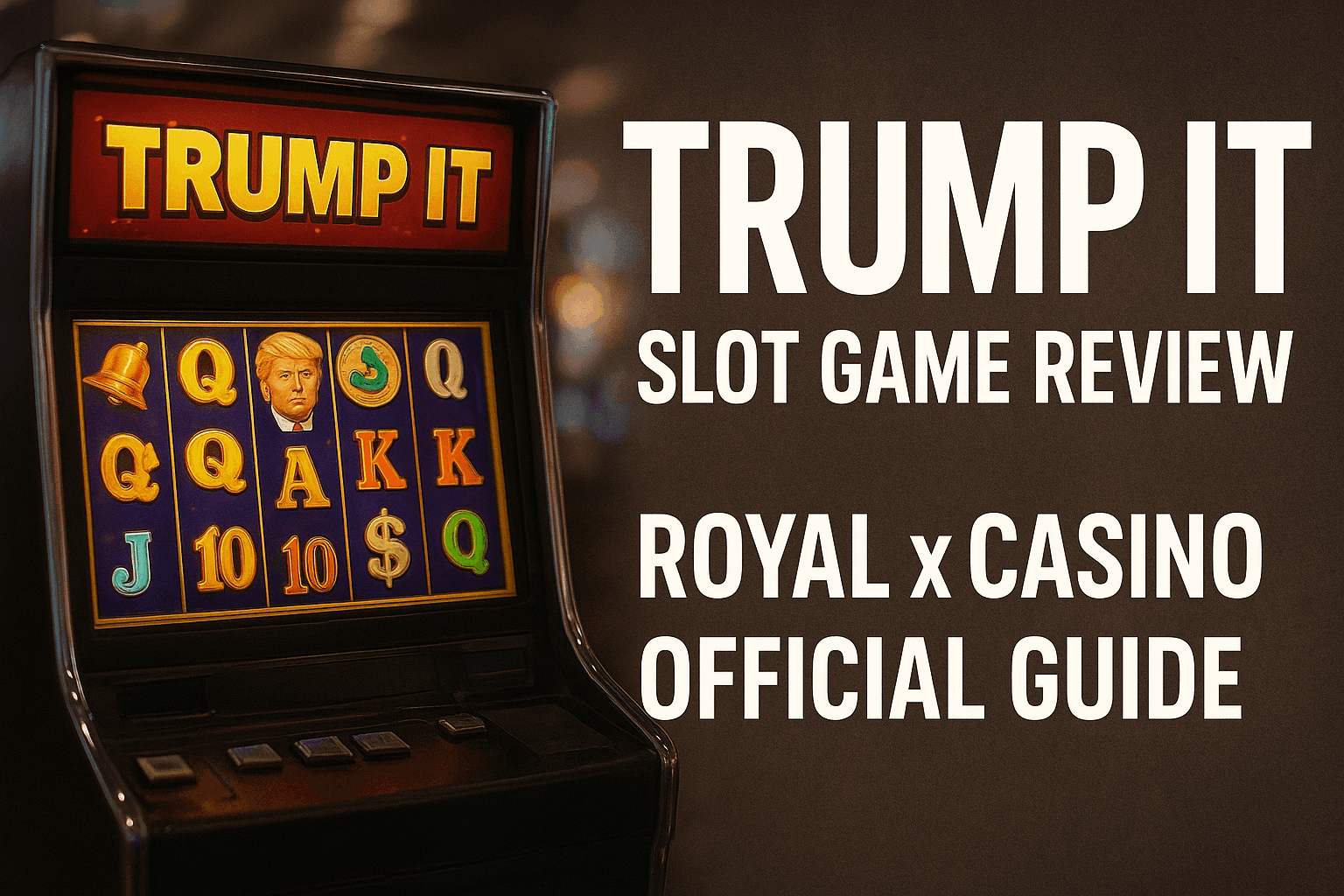A Midnight Raid and a Nation s Gambling Dilemma Royal x Casino Pakistan
Jun 25, 2025
At 3 a.m. in Lahore’s old city, dozens of police vehicles quietly sealed off five nondescript buildings. As officers broke down the doors, they found rooms filled with smoke, stacks of cash scattered across makeshift gambling tables, and walls plastered with horse racing charts and “horse carriage” betting slips. Panicked gamblers tried to burn evidence or toss banknotes out the windows—but it was too late. This meticulously planned raid resulted in 1,619 arrests, the seizure of ₨8.41 million (≈ $29,900) in gambling funds, and the filing of 413 criminal cases. It was not only Pakistan’s largest anti-gambling operation in 2025 but also exposed the tip of the iceberg in the Islamic Republic’s long struggle against illegal gambling.

01 High-Pressure Crackdowns: History Repeats
"Horse Carriage" Betting: The Canker of Underground Gambling
The raid specifically targeted an illegal betting system called "horse carriage," which mimics horse race gambling but operates more covertly and fluidly. Bettors place wagers in small rooms, while organizers receive bets and distribute funds via encrypted messages, forming a vast underground network across Pakistan’s urban underbelly. Though police withheld details, the massive cash haul indicates this "crude" form of gambling has spawned a significant illicit cash flow.
The Sword of Law Hangs High, Punishment is Severe
Lahore police’s thunderous operation was no accident. It directly enforced the 1977 Prevention of Gambling Act, which stipulates: All forms of gambling are illegal in Pakistan, with offenders facing imprisonment.
The sole exceptions are state-run lotteries and limited horse race betting—ironically, the very model mimicked by the illegal "horse carriage" operations, exposing regulatory gaps caused by blurred legal boundaries.
A Persistent Tradition, A Rigid Enforcement Model
The raid continues Pakistan’s decades-long enforcement pattern: concentrating resources on physical venues, especially organizers and dens. The government believes crushing "visible" gambling sites offers stronger deterrence and signals a commitment to "Islamic values." Yet, like cutting weeds, this approach is futile—one den falls, only for more to emerge in hidden corners or migrate online.
02 The "Underground Boom" of an Illegal Industry
The Chasm Between Law and Reality
Despite clear legal prohibitions, gambling has never truly vanished in Pakistan. Industry observers note sustained growth in the country’s illegal iGaming sector, drawing participants from laborers to professionals.
This "boom" stems from a clash between demand and suppression: in a nation with limited entertainment options and a large youth population, gambling’s thrill and economic lure prove hard to extinguish.
Breaking Walls Online: International Platforms Fill the Void
As crackdowns intensify offline, more Pakistanis turn online. Using tools like VPNs, they access international betting platforms like 1xBet and Megapari, which accept Pakistani users and local payment methods despite lacking government authorization.
This "cross-border gambling" exists in a legal gray zone—users break the law, but the government struggles to hold foreign operators accountable.
Covert Payment Channels
Underground gambling survives through hidden financial flows. Local mobile wallets like JazzCash become vital tools: users can quickly deposit, transfer anonymously, or cash out via agents, forming a closed "deposit-bet-withdraw" loop.
Though designed for legitimate payments, JazzCash’s "branchless" nature is exploited by gambling, highlighting regulatory neglect of payment channels.
03 Why the Total Ban Fails
The Governance Trap of "Blocking Without Diverting"
Pakistan’s near-50-year gambling ban has proven ineffective. The blanket prohibition has not eradicated gambling but instead:
✓ Pushed the industry underground, breeding a black-market economy;
✓ Deprived the government of potential massive tax revenue;
✓ Left gamblers unprotected against fraud and exploitation.
Clash of Religious Values and Reality
As an Islamic state, Pakistan’s ban is rooted in religious doctrine prohibiting "games of chance." Yet, with a bulging youth population and high unemployment, gambling becomes a fantasy escape for some seeking "quick riches." The rift between religious ideals and socioeconomic realities fuels tacit public resistance to the ban.
Regional Pressure from Global Trends
Policy shifts in neighboring Islamic nations offer stark contrasts:
• UAE pilots casino legalization, boosting tourism and investment;
• Morocco, Lebanon, etc., allow certain controlled gambling forms.
These cases suggest a possibility: Regulation can be safer and more effective than prohibition, especially where demand objectively exists.
04 Economic Temptation vs. Religious Restraint
The Lure of a Billion-Dollar Market
Bloomberg analysis suggests that if Pakistan follows the UAE in partially legalizing gambling, it could trigger a chain reaction in tourism, investment, and jobs—especially attracting capital from China and neighboring states. The government could tax legal operators and channel revenue into public health, education, and social programs—a core argument of reform advocates.
A Middle Path: "Controlled Gambling"
Experts propose a Lebanon-style model: no full legalization, but licensing specific entities to run regulated activities (e.g., sports betting, lotteries).
This could meet some demand while using licensing to limit scale, mandating "responsible gambling" mechanisms (e.g., addiction help) from operators.
Technology-Enabled Regulation
The digital age offers new tools to balance oversight and demand:
✓ Biometric verification to ensure adult players;
✓ AI monitoring for abnormal betting patterns;
✓ Mandatory betting limits and cooling-off periods.
These methods are proven in the West; Pakistan could adopt mature frameworks if it opens up.
05 The Gray Survival of Online Gambling & Legal Alternatives
Local Players’ "Unprotected" Risks
Currently, Pakistani players using international platforms face:
× No fund security (platforms can vanish);
× No recourse for disputes;
× High risk of phishing scams/data leaks.
They urgently need legal, regulated, localized alternatives.
Royal x Casino: A Benchmark for Compliance
In this context, Royal x Casino holds unique value—though unlicensed in Pakistan (due to current law), its model offers a template for a future legal market:
✓ Strict compliance: Operates only in licensed regions, enforces KYC & AML;
✓ Responsible gambling tools: Self-exclusion, time-outs, reality checks;
✓ Localized payments: Seamless integration with JazzCash, etc.
Player Safety Guide
For Pakistanis still participating, even via Royal x Casino:
• Use JazzCash as an intermediate wallet (avoid direct bank exposure);
• Set deposit limits; regularly self-assess gambling habits.
06 Pakistan at the Crossroads: Dawn of Change?
Faint Signals of Policy Shifts
Despite official insistence on the ban, undercurrents suggest change:
In 2024, MPs privately debated "legal obsolescence in the digital age"; provinces proposed using lottery revenue for poverty programs. Economic realities may drive gradual reform.
Regulatory Sandbox: A Potential Breakthrough
Scholars suggest Pakistan borrow from fintech: create a "gambling regulatory sandbox":
→ Phase 1: Allow betting on international sports only;
→ Phase 2: License 12 operators to test online casinos;
→ Phase 3: Tax revenue funds addiction prevention/treatment.
This phased approach minimizes social risk while testing regulatory capacity.
The Stakeholder Chessboard
Future policy hinges on a complex power balance:
• Religious groups: Demand ban, protect religious purity;
• Finance Ministry: Crave revenue, eye legalization’s tax potential;
• Tech-savvy youth: Demand entertainment freedom, push online access;
• International operators: Eye untapped market potential.
The Lahore raid is the old model’s continuation—but may also catalyze change. As enforcement costs rise, questioning the policy itself becomes inevitable.
The Long Road from "Total Ban" to "Smart Regulation"
The ₨8.41 million seized in Lahore is a microcosm of Pakistan’s gambling dilemma—proof that bans can’t extinguish demand, yet testament to the underground economy’s tenacity. As more nations globally choose "regulation over prohibition," Pakistan stands at a historic crossroads:
Should it keep raiding "horse carriage" dens? Or build a controlled legal market, transforming taxes into social welfare? The answer lies not in the next raid, but in re-examining law, economics, and human nature.
As one Lahori told reporters after the raid:
"They arrested 1,600 people... but do you know how many will place bets again tomorrow?"
Where demand persists, channeling—not clamping down—is the ultimate governance wisdom.











